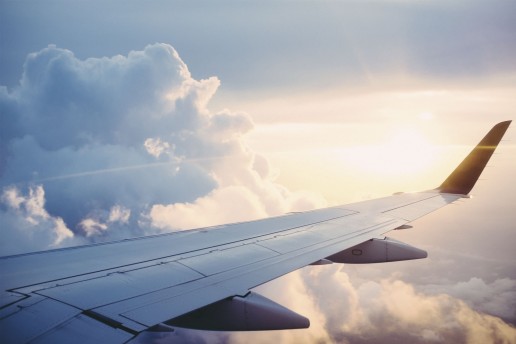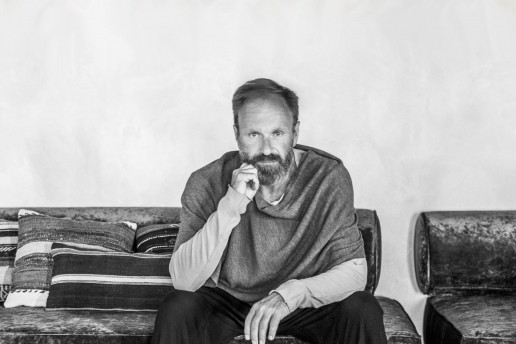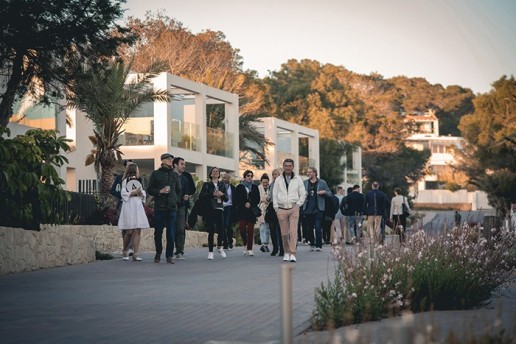What was already clear a year ago has reached a state of inevitability: the ways we live, work and come together are changing. The prospect of jetting around the world for a few days in a tourist hotspot had already lost much of its appeal, and the pandemic ultimately tipped the scales in myriad ways. This kind of travel was no longer merely unpleasant and ecologically irresponsible, but potentially dangerous, even fatal, to ourselves and to others. Even as the travel industry begins to take its first tentative steps towards the post-Covid era, the desire for a new pace, kind and quality of moving through the world remains.
Slow speaks to this evolution. An intention, a wish, a recourse, Slow is a collective of people, places and projects that reframe the way travellers live and connect. Through the holistic development, design and programming of destinations in Portugal, Mexico, Spain, Germany and beyond, the group is building and nourishing locally rooted ‘Places’ that offer a deeper, more conscious form of hospitality than the norm.
The collective has been quietly unfolding since the creation of La Granja Ibiza in 2016. The transformation of a dormant agricultural plot into a working farmstead devoted to discourse around food set the stage for a new kind of hospitality concept. Cofounded by pioneer Claus Sendlinger, whose previous companies include Design Hotels, Slow began to assemble a community of designers, farmers, writers, artists, artisans and architects whose work engages with slowness toward a resetting of values in hospitality and beyond.
Drawing on the insights of the slow movement, adaptive reuse and regenerative agriculture, Slow takes a localised, conscientious approach to every element of the design toward the creation of integrated aesthetic environments that aim to enrich wellbeing and model a more sustainable future. Its Places offer not a pit stop away from the hectic pace of daily life but a continuous journey of reconnection, of learning to live in harmony with nature and our communities. Launched in March 2021, the Slowness journal is where these ideas, stories and creative minds come alive through original reportage, photography, film and illustration.
Two of Slow’s Places are already open: La Granja Ibiza, whose no-waste agriturismo concept is subject of the immersive Slowness feature Encyclopedia of the Farm, and Tulum Treehouse, a hybrid guesthouse centred around an open-air kitchen that facilitates exchange between artisans, chefs, farmers, artists and designers toward the preservation and evolution of Mexican craft traditions. After relaunching in 2020 with a restaurant and artisans-in-residence programme, Tulum Treehouse is now partnering with the prolific designer Héctor Esrawe, whose perfumery Xinú will curate botanicals across the Treehouse. The kitchen at Tulum Treehouse works in tandem with tropical regenerative agriculture project Mestiza de Indias, which sets out to recover heirloom species while aiming to combat the harmful effects of Mexico’s agrochemical industry – a collaboration depicted in Slow’s Regenerating the Yucatán feature, written by Susannah Rigg.
The next destination to open is Marina Marina, a creative campus at the intersection of wellbeing, culture and sustainability, which Slow is building at the disused site of the Weimar-era Spree River Baths in Berlin’s ex-industrial eastern riverside neighbourhood of Rummelsburg, one of the city’s most dynamic emergent culture quarters. Opening in two phases in 2022 and 2023, the development is an architectural collaboration led by Neo-Brutalist master Arno Brandlhuber, Germany’s representative in the 2021 Venice Architecture Biennale and subject of Slowness short film Into the Mind: Arno Brandlhuber. Integrated into the verdant riverside surroundings, the site’s symbiotic landscape will include an academy, a library, restaurants, a hotel and a subterranean performance space designed by Austrian architect Monika Gogl. One of the original structures of the baths will be home to a multi-tiered restaurant concept helmed by renowned Danish chef and restaurateur Frederik Bille Brahe, whose collaboration with Slow began at the end of 2020 with the opening of the cultish Sofi bakery in Berlin’s Scheunenviertel quarter, as detailed in a recent interview.
In Lisbon’s ancient Graça neighborhood, Slow is converting three historic buildings from three different centuries into Casa Noble, a reimagined noble house, cultural salon and urban renewal project set to open in early 2023. Inspired by Brazilian modernism and the architectural traditions of old Lisbon, the property comprises 13 guestrooms, a restaurant set within a tropical garden, a gathering space for guests spread throughout three interlocking rooms with a library and open fireplace, as well a residence for longer-term stays with a private garden and terrace. Opening this summer meanwhile, Casa Noble’s beach house Simple is the first step in Slow’s transformation of a scenic stretch of beach just outside the favela-like fishing village of Cova de Vapor on the laid-back northern end of Portugal’s Caparica, just 20 minutes from central Lisbon.
Deeper into the biodiverse hills of rural Portugal, a frontier for new models of conscious exchange, Slow is currently developing two Places geared toward agriculture and wellbeing. The group is converting an 82-hectare clifftop farm estate – overlooking a wild stretch of surfable Portuguese coastline an hour from Lisbon – into a biodynamic farmstead for year-round living and hospitality, debuting in 2024. The farm will supply the produce for the restaurants at Casa Noble and Simple, as well as for a weekly farmer’s market in Graça.
And with architect and designer Cédric Etienne, co-founder of the Antwerp-based Studio Corkinho, Slow is transforming an old-growth cork farm in the hills of Alentejo into a contemporary retreat for alternative and naturopathic healing, set to open in 2025. The farm features in Into Alentejo, a travelogue taking readers on a journey across the fishing villages, prehistoric coastal caves and untouched surf spots of Portugal’s south.
Through year-round and seasonal programming, each of the Places takes a central discursive focus linked to its natural and cultural context. From workshops, artist residencies, exhibitions and performances to community projects and joint activities with local arts and environmental organisations, Slow curates an annual calendar that reaches into the social and cultural fabric of the destinations in which its projects reside.
“As the time comes to travel again, we yearn for an older, slower way of moving through the world. Yet we look toward the future, to new sustainable technologies and design methods, to novel ideas and audacious dreams,” say the collective. “We want to be outdoors, to nourish ourselves on what Thoreau called ‘the tonic of wildness,’ and to live in the moment so that we can inhabit an existence that’s ‘more elastic, starry and immortal’. Or, in the words of Rachel Carson, the mother of the green movement: ‘One way to open your eyes is to ask yourself, what if I had never seen this before? What if I knew I would never see it again?’”
Related Posts
21 July 2020
The Future of Travel: A Design Hotels Zoom event
18 July 2019



